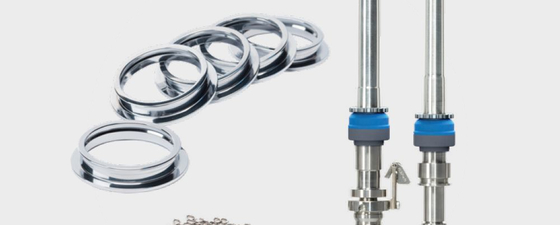| Question: | | | How has the production landscape changed over the last 25 years? |
| Wolf: | | | The development from manual to fully automated production has brought many changes. In 1999, we produced only a small amount ourselves and focussed on internal assembly. With our production team together with automation technology suppliers, we were able to highly automate the assembly of some of our products in Fellbach, Germany. The employees first had to get familiar with these sophisticated systems, but thanks to detailed training, they did this within a short space of time. The biggest advantage of automation is that we can react flexibly to workload fluctuations with a small number of employees. |
| | | | |
| Question: | | | How do you achieve that high product quality? |
| Wolf: | | | We minimise manual activities as much as possible in manufacturing and strict quality controls are very important. The continuous review of processes for quality optimisation, simplification and cost savings has resulted in many ideas and follow-up projects. Highly motivated employees are also a key factor in ensuring good quality - a big thank you to my entire team for working in such a quality-conscious manner. |
| | | | |
| Question: | | | Which were key milestones in the optimisation of the production process? |
| Wolf: | | | Our first milestone was the additional production line for foot and neck bearings to increase our capacity. The next step was an investment in the assembly of the new pendulum roller bearing generation PK SE, including a 100% inspection, which replaced the labour-intensive manual assembly of the PK 2025. Another milestone was the first automatic assembly of a double-row bearing in Fellbach. Our system to put on sleeves as surface protection is currently the latest milestone. However, we are constantly working on further optimisations in production and have further projects in the pipeline. |




